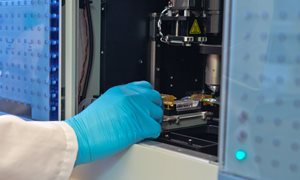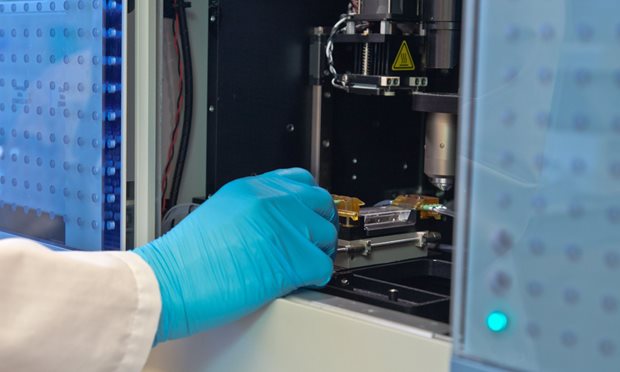

About us
Research of the department focuses on personalized pharmacotherapy and systems pharmacology/toxicology ranging from molecule to patient.Our researchers Pharmacology and Toxicology
A list of researchers connected to this department.
read more

Ussing Chamber experiment
With this movie we show the Ussing Chamber experiment which is a unique ex vivo way of investigating the passage of compounds through the intestine. By using fresh human intestine tissue and several vitality parameters we can come as close as possible to the real situation in our body.

State-of-the-art technique ex vivo placenta perfusion
At the department of Pharmacology and Toxicology we offer state of the art approaches, techniques and expertise to study pharmacological mechanisms driving the clinical pharmacology and toxicology of drugs. read moreState-of-the-art technique ex vivo placenta perfusion
At the department of Pharmacology and Toxicology we offer state of the art approaches, techniques and expertise to study pharmacological mechanisms driving the clinical pharmacology and toxicology of drugs. One such approach is the ex vivo placenta perfusion technique, which we use to study the handling of drugs by the human placenta. For more information see the demonstration video. Please contact dr. Rick Greupink for more information and collaborations.
Internships
Discover our internship opportunities at Pharmacology – Toxicology. read moreFacilities and services Pharmacology and Toxicology
This department wants to improve the efficacy and safety of drugs including drug overdoses and intoxications. We investigate the complete spectrum from the molecular to the clinical level. see listFacilities and services Pharmacology and Toxicology
Bioanalytical equipment for analysis of small molecule pharmaceuticals and toxicants in any biological matrix.
- Liquid chromatography-tandem mass spectrometry - LC MS/MS
- High performance liquid chromatography – HPLC
- Custom-made method development for detection of small molecules in various biological matrices for research purposes.
- See also our website RTC Mass Spectrometry website, as offer our expertise also to this RTC.
Cell models
- Overexpression of transport proteins in cells or vesicles.
- Transport assays in cell models or with specific transport proteins.
- Ample experience with culturing of various human placental trophoblast cell lines to study drug disposition and effects.
- Ample experience with culturing and differentiating skeletal muscle myotubes.
- Ample experience with culturing a patented in-house developed human conditionally immortalized proximal tubule cell line (ciPTEC)
- Experience with culturing and differentiation of iPSC-derived cardiomyocytes.
Imaging
- High-content and high-throughput microscopic imaging assays to asses multiple mitochondrial function parameters and cellular viability
Ex vivo models
- small vessel myograph
- ex vivo, dual-side human placenta perfusion to study placental drug transfer. See our demonstration video here.
- ex vivo culture of placental villous tissue fragments to placental drug effects
- Isolated contracting (human) atrial tissue model
- Ussing Chamber for intestinal transport function (adult and pediatric)
- Human cardiac auricle contractility analysis to study the effects of drugs on cardiac muscle function
- Ussing chamber system. See our demonstration video here.
Human in vitro models
- Conditionally immortalized proximal tubular epithelial cells (ciPTEC)
- Kidney-on-chip
- Vessel-on-chip model with HUVECs (in collaboration with Twente University)
- HUVEC culture (in collaboration with Dept of Obstetrics); quantification of transporter expression and transporter function
Human in-vivo models
- Perfused forearm model (with intrabrachial drug infusions and forearm blood flow measurements).
Data analysis and modelling
- Physiologically-based pharmacokinetic/dynamic and toxicokinetic modelling
- In silico prediction of plasma and tissue exposure of drugs and toxicants
- Structure-based off-target modelling based on pharmacophore modelling of drug-protein interactions.
- Metabolic flux modelling using human metabolic network reconstructions.
- Molecular docking and virtual compound screening.
Getting there
Visiting address
Department of Pharmacology and Toxicology
Radboudumc main entrance
Geert Grooteplein Zuid 10
6525 GA Nijmegen
Directions



